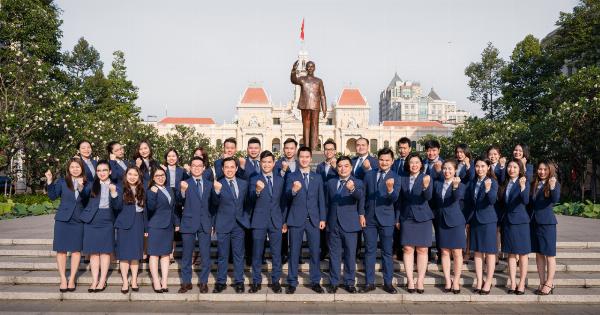Greed is a pervasive and destructive force that often consumes individuals and societies alike. It is an insatiable desire for wealth, power, and material possessions that knows no bounds.
Greed blinds us to the needs of others, distorting our priorities and leading to a world driven by self-interest rather than communal harmony. Breaking free from the clutches of greed is no easy feat, but it is a path worth pursuing for the betterment of ourselves and our society.
Understanding the Nature of Greed
Before we can embark on the journey to freedom from greed, it is essential to understand its nature and roots. Greed is rooted in fear and a belief in scarcity.
It stems from a deep-seated insecurity and the false notion that acquiring more possessions or power will bring us happiness or protect us from the uncertainties of life.
Greed often manifests as an unquenchable desire for material wealth, leading to an obsession with consumerism and endless accumulation. It drives the pursuit of financial success at any cost, disregarding the ethical and moral consequences.
Greed also extends beyond the individual level, permeating into societal systems that prioritize profit over human well-being and environmental sustainability.
Recognizing the Illusion of Fulfillment
One of the first steps on the path to freedom from greed is recognizing the illusion of fulfillment it presents. While material possessions can provide temporary pleasure, they often fail to bring true happiness and fulfillment.
The pursuit of wealth and possessions becomes a never-ending cycle, as each acquisition only leaves us desiring more. This insatiable desire keeps us trapped in a perpetual state of dissatisfaction and prevents us from finding contentment in the present moment.
It is essential to shift our perspective and redefine what it means to live a fulfilling life.
Instead of measuring our worth and success solely based on material wealth, we can focus on cultivating meaningful relationships, pursuing personal growth, and contributing to the well-being of others. By redirecting our attention towards these aspects, we can break free from the grip of greed and find genuine fulfillment in life.
Cultivating Gratitude and Contentment
Greed feeds on dissatisfaction and the constant desire for more. By cultivating gratitude and contentment, we can weaken the hold of greed on our lives.
Gratitude allows us to appreciate the abundance that already exists in our lives, shifting our focus from what we lack to what we have. It reminds us of the simple joys and blessings that often go unnoticed amidst the chase for more.
Practicing contentment entails finding satisfaction and peace in the present moment, rather than depending on external circumstances for our happiness. It involves letting go of the mindset of always wanting more and embracing a sense of sufficiency.
Contentment liberates us from the never-ending pursuit of material possessions and allows us to experience the richness of life as it unfolds.
Embracing Generosity and Compassion
One of the most powerful antidotes to greed is embracing generosity and compassion. When we let go of our attachment to material possessions and become more giving, we break free from the narrow confines of self-interest.
Generosity fosters a sense of abundance by acknowledging that there is enough to share with others.
Compassion expands our perspective beyond our immediate needs and desires, enabling us to empathize with the struggles and suffering of others. It prompts us to take action and make a positive difference in the world.
By cultivating both generosity and compassion, we counteract the selfish tendencies of greed and create a ripple effect of kindness and well-being.
Practicing Mindfulness and Self-Reflection
Mindfulness and self-reflection are essential practices on the path to freedom from greed. By developing awareness of our thoughts, feelings, and actions, we can begin to recognize the role greed plays in our lives.
Mindfulness allows us to observe our desires and impulses without judgment or attachment, giving us the space to choose a different response.
Self-reflection involves examining our values, priorities, and the impact of our choices on ourselves and others. It helps us identify patterns of behavior driven by greed and explore healthier alternatives.
Through consistent mindfulness and self-reflection, we can unmask the destructive nature of greed and make conscious choices that align with our true values.
Engaging in Social Change
Breaking free from greed is not solely an individual endeavor but also necessitates collective action. Engaging in social change offers an opportunity to address the systemic drivers of greed and create a more equitable and compassionate society.
By advocating for policies that prioritize the well-being of all, we challenge the structures that perpetuate greed and foster inequality.
Social change can take many forms, from participating in grassroots movements and community initiatives to supporting organizations working towards societal transformation.
By joining forces with like-minded individuals, we amplify our efforts and create a platform for change that transcends individual actions.
Striving for a Balanced Life
On our journey to freedom from greed, it is crucial to strive for a balanced life. This involves finding equilibrium between our material needs and our spiritual, emotional, and social well-being.
Imbalances arise when we prioritize the pursuit of wealth and possessions at the expense of other aspects of our lives.
By consciously cultivating a balanced life, we ensure that our actions align with our core values and aspirations.
This may involve making choices that prioritize experiences over possessions, relationships over material wealth, and personal growth over external validation. Striving for balance helps us maintain perspective, reduce the grip of greed, and prioritize what truly matters.
Finding Support and Accountability
The path to freedom from greed can be challenging, and having support and accountability is crucial. Surrounding ourselves with individuals who share our values and aspirations can provide encouragement, motivation, and guidance.
Whether it be joining a support group, seeking mentorship, or engaging in meaningful conversations, connecting with others on a similar journey can strengthen our resolve.
Accountability mechanisms, such as setting personal goals or sharing our progress with others, help us stay on track and maintain our commitment to breaking free from greed.
They create a sense of responsibility and provide opportunities for constructive feedback and reflection.
Embracing the Journey
The path to freedom from greed is not a linear one but rather a lifelong journey. It requires constant self-reflection, mindfulness, and a commitment to personal growth.
As we navigate this path, we may stumble and encounter setbacks, but these challenges also offer opportunities for learning and growth.
Embracing the journey entails being kind and patient with ourselves as we strive to let go of the grip of greed. It involves celebrating small victories and acknowledging that change takes time.
The path to freedom from greed is not about perfection but rather progress and a willingness to evolve.
As we embark on this path, we not only liberate ourselves from the bonds of greed but also contribute to the creation of a more compassionate, equitable, and sustainable world.
By being the change we wish to see, we inspire others to follow suit and collectively build a future free from the shackles of greed.






























